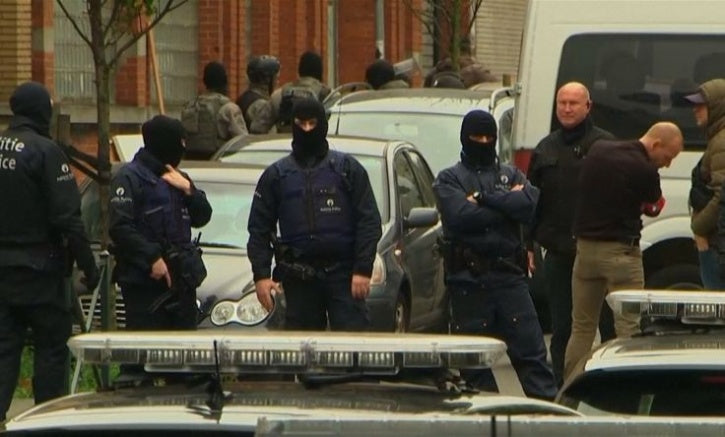The EU Security Apparatus: Designed to Fail

In the wake of the terrorist attacks in Brussels Antonis Vradis warns that such actions are being used to facilitate the securitisation and growing authoritarianism of the EU 'supra-state'.
I am in transit once again and it was here, on the move, that the terrible news from Brussels caught up with me. In this, I suspect, I am not alone. By this point in time there are so many of us caught in this seemingly endless state of movement. From those walking down the stairs into a typical metro station, at a whatever bus station waiting to head to work, to those habitually waiting to board a flight to a close or far-flung destination, this latest attack (as I am sure someone will describe more eloquently than me) may very well be an attack on our new normal, this always-on-the-move mode of being.
Sure, we can do that. We can continue waiting for the next inevitable attack: ‘what we feared, has happened,’ in the words of the Belgian Prime Minister no less. This is no longer a question of if, it is a question of when, where and what death toll. And we can hastily prepare commentaries on what the attacks really threatened this time around: perhaps it was western liberalism in the Charlie Hebdo attacks, the urban spirit in November in Paris or our everyday condition of constant mobility now. We can do that, because as members of the (widely speaking) progressive camp, there doesn’t seem to be much space left for us to do much else, nothing than to be posthumous prophets of death.
But as this new state of being becomes chillingly ordinary in the heart of Europe, there is another kind of order setting ground in its fringes — and much beyond that, I think. Something that could change the essence of how we live our lives in the continent from now on. Just a few days ago we were outside Moria, the ‘Hotspot’ registration centre for the island of Lesvos, working on our collective research project which aims to understand the role of the hotspots in the EU’s dealing with the migrant crisis. The latest deal with Turkey means island hotspots, Moria included, will now become ‘courthouses’ assigned to decide the fate of asylum seekers at the EU gates.
There is a cringe-worthy parallel between the securitisation of the spaces of living for those of us lucky enough to be inside the EU territory and the spaces reserved for those arriving here: they are both inefficient and inadequate. Call them inept, however, and you’ll be missing too much of a grotesque new picture. The hotspot approach will deter as many migrants as the securitisation of the spaces of our everyday coexistence will deter would-be terrorists: very few, and in any case surely not enough to cause any significant change in the way things are headed. But space-bound, exceptional measures as part of the EU security apparatus are not meant to be effective in this way. The militarisation of key sites in Paris ahead of the November attacks and its apparent failure neatly fed into the discourse calling for the generalised state of exception now in place.
Similarly, the hotspots will not work in the way we are told they are meant to. They will not deter, thankfully, the thousands who have seen the real terror of war. But they are still invaluable as breeding ground, an unprecedented exercise into finally materialising and grounding the European Union. A supra-state outsourcing, in exemplary neoliberal style, its social welfare obligations to the private sector (the NGO/humanitarian complex). A supra-state under which core sovereign state functions (the judiciary, the police) are passed on to transnational agencies including FRONTEX, the European border police — or EASO, the judge-like Asylum organisation in the hotspot courthouses. A supra-state that sooner or longer will, just like in the case of the French state of exception, claim its hotspot breeding ground is no longer enough: that its state model needs to reach outside the camps if it is to be effective. And effective it will be. Unless we stop merely writing denunciations in response to each and every attack, the EU supra-state will march ahead. No longer granting any rights, not recognising us even as citizens, we are merely to be distinguished between those lucky enough to be inside the border, the unlucky to be caught into it — and between them, those to be spat out and those that will be filtered through, joining us in a collective state of being where we are no longer able to invoke our whatever rights. Our right to claim free use of public space or to protect our private spaces are equally surrendered in the name of ‘security’. We are no longer to sit around claiming anything, we are merely expected to keep moving on as and when required and allowed to do so. Unless, that is, we get a move on in fighting against this still infant EU supra-state.
Antonis Vradis is based at Durham University's Geography Department. He is a member of the Transcapes research project and Co-I in Urban Transformations.